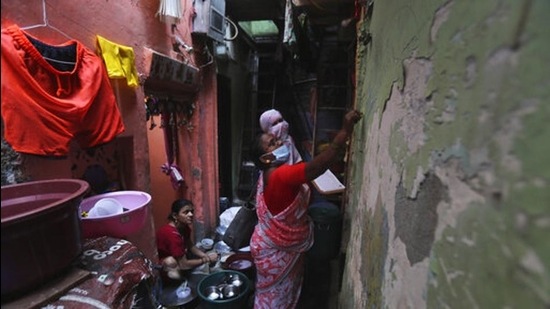Budget 2021: Overcome poverty, battle inequality
It would be right to go back to socialism’s commitment to equality, and to reform India’s economy so that overcoming poverty once again becomes the top priority.
In my last column, I wrote about the possible danger of an economic recovery which enriches the rich and impoverishes the poor. Now, it seems that the Covid-19 pandemic has already created that situation. The international aid agency, Oxfam, has published a report with the telling title The Inequality Virus. According to the global report, during the pandemic, “over two million people have died and hundreds of millions of people are being forced into poverty while many of the richest — individuals and corporations — are flourishing”.

The report quotes the telling description of the secretary-general of the United Nations, Antonio Guterres, of the global crisis we face. He said, “While we are floating in the same sea it’s clear that some are in super yachts while others are clinging to drifting debris.” In India, while the wealth of billionaires was increasing by 35% during the lockdown, 122 million citizens were losing their jobs.
The Oxfam report blames neoliberal economics for inequality, and points out that even Klaus Schwab, executive chairman of the World Economic Forum, whose Davos meeting is the place to be seen for the world’s richest and most influential people, has said: “We must move on from neo-liberalism in the post-Covid era.” The jobs lost in the informal sector amounted to 75%. Handloom weavers and other craftspeople are among the most economically fragile communities in that sector.
Five years ago, I visited a weaver centre near Barabanki in Uttar Pradesh. At that time, the weavers, while by no means prosperous, were being helped by a non-governmental organisation to increase their income to establish digital ways of marketing their cloth by cutting out middlemen.
Before writing this column, I contacted Utkarsh, the coordinator of the centre, to find out how the weavers had fared during the lockdown. He replied, “They were pushed to extreme distress”. Because lockdown was imposed so suddenly, they had no time to prepare themselves for it. They were waiting for the government to tell them what to do. Even when the government distributed rations, they were only given to migrant workers who had returned home. There were no orders from master weavers, so they had no income and instead had to borrow money from them. The supply line of cotton from Surat was cut. That was not restored for four months. So, now, they are in debt and it will be difficult to pay off those debts because the demand for their cloth has not fully recovered.
Despite being a major source of employment, the handloom and handicrafts have been sectors most neglected by the government in the era of neoliberal economists. During this crisis, the textile ministry has also wound up the All India Handloom and Handicrafts Board, though this was done in the name of minimum government, maximum governance.
The Oxfam report on inequality included another surprising voice calling for global economics to change. The Financial Times is one of the world’s most influential economic and business newspapers. It is quoted in the report as calling for “radical reforms to reverse the prevailing policy direction of the last four decades”, the period dominated by neoliberal economics.
When India became independent, the leaders of the Congress saw overcoming poverty as their top priority and so they turned to socialism. Even now, India is committed constitutionally to socialism, but the commitment was made in 1976 by Indira Gandhi’s Emergency government which was flouting the Constitution. Indira Gandhi’s socialism gave that creed a bad name. It wouldn’t be right to go back to that socialism. Circumstances have changed so much that it wouldn’t be right to go back into Nehruvian socialism either. But it would be right to go back to socialism’s commitment to equality, and to reform India’s economy so that overcoming poverty once again becomes the top priority.
The views expressed are personal



